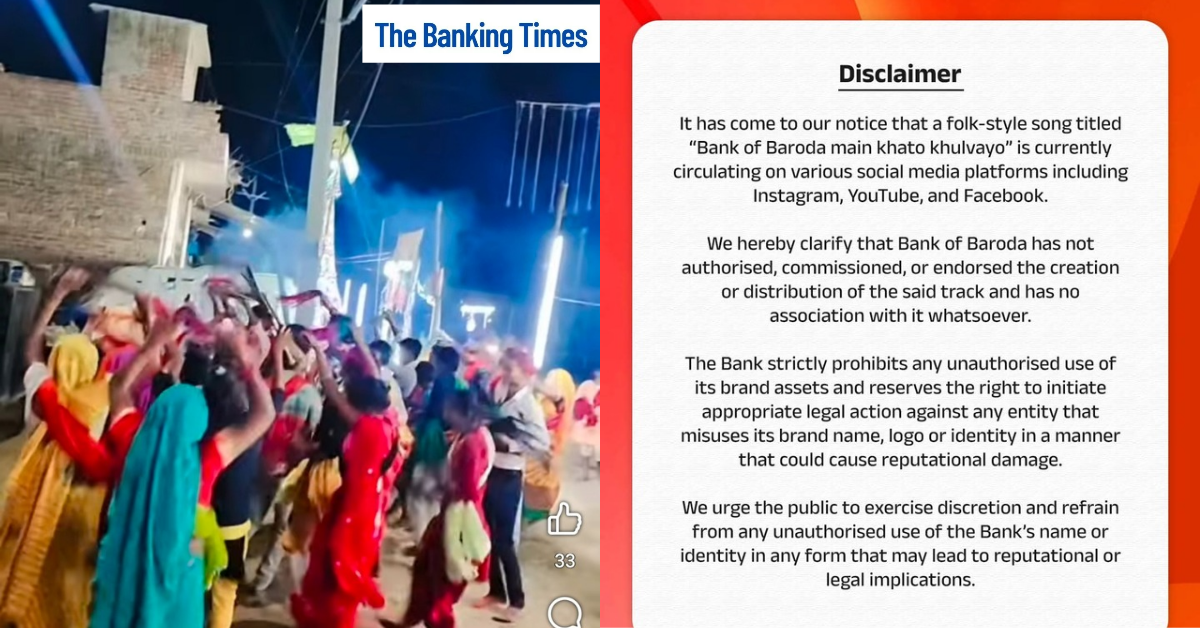In a recent development that has taken social media by storm, Bank of Baroda (BoB) has issued a strict public disclaimer regarding the unauthorized circulation of a folk-style song titled “Bank of Baroda main khato khulvayo”.
🎶 The Viral Track and the Bank’s Stand
The track has been making rounds on platforms like Instagram, YouTube, and Facebook, prompting many to believe it is officially associated with Bank of Baroda. However, in an official statement released by the bank, it has clearly denied any authorization, endorsement, or association with the song.
> “Bank of Baroda has not authorised, commissioned, or endorsed the creation or distribution of the said track and has no association with it whatsoever,” reads the statement.
🚫 Zero Tolerance for Brand Misuse
Bank of Baroda has firmly warned the public against the unauthorized use of its brand assets, including its name, logo, and identity. The bank reserves the right to pursue legal action against any individuals or entities responsible for misusing its branding in a manner that may lead to reputational harm.
Such misuse, even when perceived as humorous or promotional, can lead to serious legal consequences if it violates trademark or branding rights.
⚠️ Public Advisory
The bank has also urged the general public to exercise discretion, asking users to refrain from:
Creating or sharing unauthorized content that uses the bank’s name.
Spreading misinformation through folk songs or media under the pretense of official endorsement.
Misrepresenting the brand on any social platform.
💬 Why It Matters
In today’s digital world, where content goes viral within minutes, even a seemingly harmless song can pose reputational risks to trusted institutions like public sector banks. BoB’s timely intervention shows the importance of brand integrity and legal compliance, especially in the financial sector.
📝 Final Word
This incident is a strong reminder that creating viral content involving brands without permission can backfire. While creativity and satire are welcome on social platforms, crossing legal boundaries with brand identities can attract swift action.
So next time you see such content—think twice before you share.

Leave a Reply